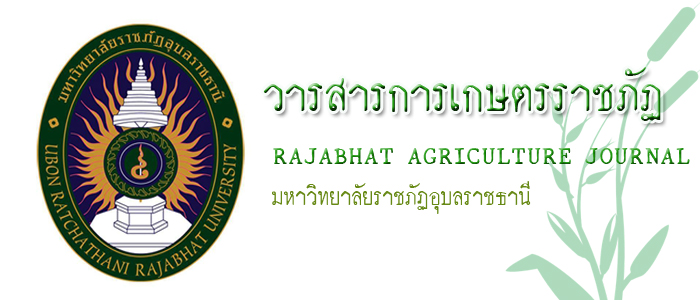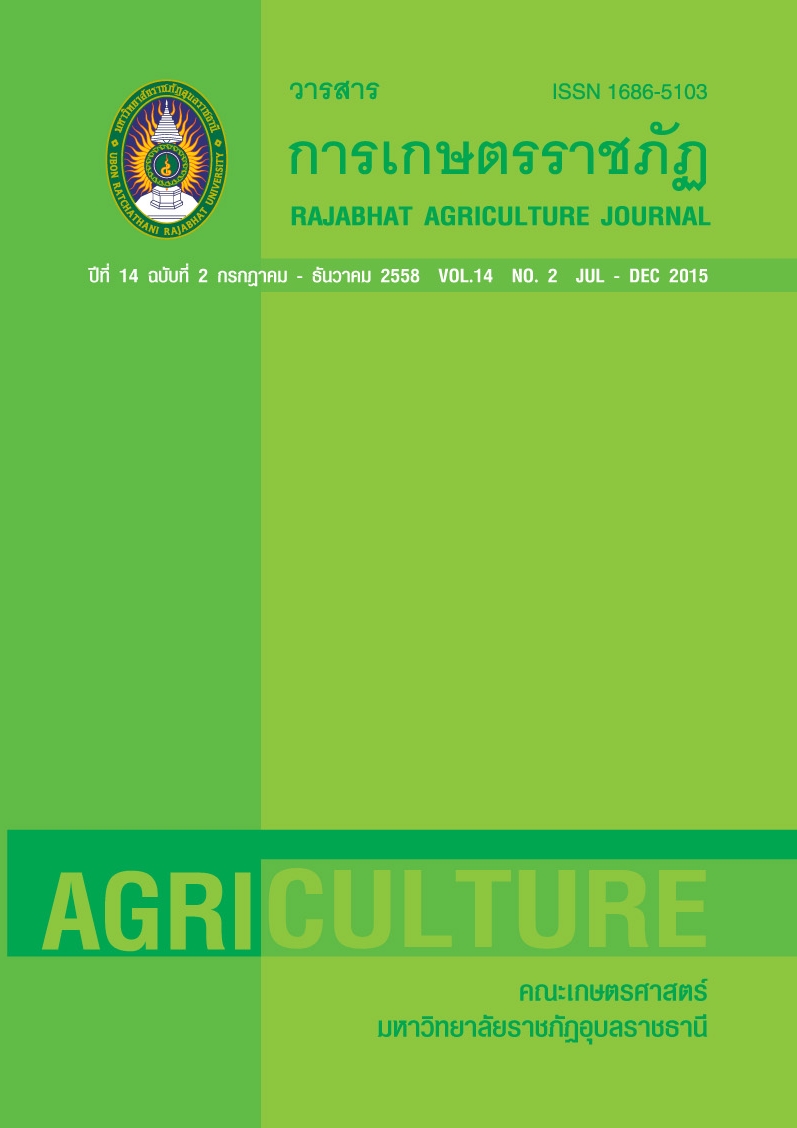The Integral Effect of Seed Enhancement Technique and the Production System on Growth and Yield Productivity Under Acid Soils for Sustainability of Organic Rice Production
The Integral Effect of Seed Enhancement Technique and the Production System on Growth and Yield Productivity Under Acid Soils for Sustainability of Organic Rice Production
The Integral Effect of Seed Enhancement Technique and the Production System on Growth and Yield Productivity Under Acid Soils for Sustainability of Organic Rice Production
--------------------------------------------
โดย Mgaya A.M1., Thobuniuepop P1., Sriwongchai T1., Sarobol E1., and Onwimol D1
ประเภท : บทความวิจัย
ปีที่ตีพิมพ์ : วารสารเกษตรราชภัฏ ปีที่ 14 ฉบับที่ 2
ผู้เข้าชม 0
วันที่ปรับปรุงข้อมูล : 2016-07-04 11:51:55
ดาวน์โหลด
บทคัดย่อ
-
Abstract
“Rice” is the staple food in Thailand. The most important rice producing areas is in central part of Thailand. Soil acidity in the area makes it unsuitable for rice production, this limits rice yield, especially on organic rice production system. On the other hand, the rectification of those problematic soils needs high cost of management. Since the rectifying method is non-organic, so the production of rice is not sustainable. Thus, this study was aimed to determine an alternative way for growing rice in that area by integrating seed enhancement technique and the organic production system to eliminate the effect of soil acidity on growth and yield of organic rice production in central Thailand. The experiment was conducted by a factorial in CRD. Firstly, rice seeds (Oryza sativa L. var. indica cv Pathumthani1) was primed by deionized water for 24 hours at 25 C and non-primed seeds were used as control. Then, both primed and control seeds were taken for germination tests and finally grown organically by two difference production systems. The System of rice intensification (SRI) and conventional system (continuously water flooded system; CN) into pots filled with acid soil under greenhouse condition with three replications. The experiment found that primed seeds had a significant (p<0.05) improvement on seed germination percentage, mean germination time, speed of seed germination, germination energy, tillering capacity, leaf area, leaf, and plant dry weight as well as total grain yield over the control for both production systems. Interestingly, the integral of seed enhancement technique and SRI system was significantly reduced the water used efficiency (WUE) over that conventional system.


